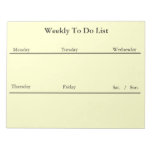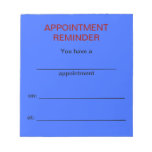You had an interview and the company told you they would be making a decision soon. Weeks go by and you haven’t heard a peep. What’s going on? There could be many reasons a company hasn’t responded to your requests for an update. Is it poor etiquette and borderline rude? Absolutely. However, there isn’t much you can do to change other’s behaviors. What you can do is understand why it may take so long and do as much as you can to stay in touch with the company. Here are the most common reasons you may not have heard back after the interview or after submitting your application.
1. Looking for a superhero. Based on the candidates interviewed or résumés received, the hiring authorities may decide to switch the focus of the job or the duties assigned. In some cases, the hiring manager may even decide not to fill the position and hold out for exactly the perfect fit. The company may repost the job to attract a new pool of candidates. During this reassessment period, it isn’t unusual for the company to stop communicating with candidates until a final decision about the job’s scope is determined. This can sometimes take weeks or longer.
2. Confusion and delay. Aligning schedules becomes challenging when multiple parties are involved, and it may cause delays in the hiring process. The reason you have not heard anything could be due to hectic schedules, a pressing deadline or emergency within the company or vacations. Acquiring hiring approval almost always requires signatures from people who are busy, traveling, sick or on vacation.
3. Change, change, change. Was the company recently bought out? Were there changes in leadership? Perhaps budgets were frozen or the new position was put on hold. Changes within the company can and do impact the ability to respond to candidates in the interview process until after the dust settles. Often company executives, legal departments or human resources mandate this silence.
4. Anticipation … Waiting for a candidate’s decision. Sometimes the process slows to a halt while the company waits for an answer from the No. 1 candidate. Based on this candidate’s response, the company may have to reach out to the second-choice candidate or maybe start from scratch.
Oh, Oh, Oh, Feelings
As the old saying goes, "love me or hate me, but spare me your indifference." This certainly applies to how employers and job seekers interact. Here are some suggestions for moving beyond your emotions and taking control of the situation. 1. Looking for a superhero. Based on the candidates interviewed or résumés received, the hiring authorities may decide to switch the focus of the job or the duties assigned. In some cases, the hiring manager may even decide not to fill the position and hold out for exactly the perfect fit. The company may repost the job to attract a new pool of candidates. During this reassessment period, it isn’t unusual for the company to stop communicating with candidates until a final decision about the job’s scope is determined. This can sometimes take weeks or longer.
2. Confusion and delay. Aligning schedules becomes challenging when multiple parties are involved, and it may cause delays in the hiring process. The reason you have not heard anything could be due to hectic schedules, a pressing deadline or emergency within the company or vacations. Acquiring hiring approval almost always requires signatures from people who are busy, traveling, sick or on vacation.
3. Change, change, change. Was the company recently bought out? Were there changes in leadership? Perhaps budgets were frozen or the new position was put on hold. Changes within the company can and do impact the ability to respond to candidates in the interview process until after the dust settles. Often company executives, legal departments or human resources mandate this silence.
4. Anticipation … Waiting for a candidate’s decision. Sometimes the process slows to a halt while the company waits for an answer from the No. 1 candidate. Based on this candidate’s response, the company may have to reach out to the second-choice candidate or maybe start from scratch.
Oh, Oh, Oh, Feelings
- Leverage insider information. If you haven’t found someone inside the company yet, now is the time to start asking and reaching out. When you find someone – and if you try hard enough, you usually can – ask what is going on inside the company. While you're at it, ask for an update on where the company is in the hiring process.
- Keep looking. Don’t stop campaigning for your new job. Continue to network, apply for jobs and keep your job search momentum going. What’s the worst thing that could happen?
- Persistence pays. Never make assumptions. Instead, get facts. Whenever you have the chance to speak with a live person, ask when you should follow up next. In the absence of data, checking in every week or two isn’t necessarily being a pest, especially if you really want the job.
- Maybe you didn’t want the job anyway. The company’s lack of follow through and communication may or may not be indicative of the corporate culture. It may be the result of one person’s overwhelmed work schedule. Remember not to make assumptions. As you continue to invest your time following up, you may decide this wasn’t the job or the company for you. Move forward and find your next great match.
The Executive Suite







No comments:
Post a Comment